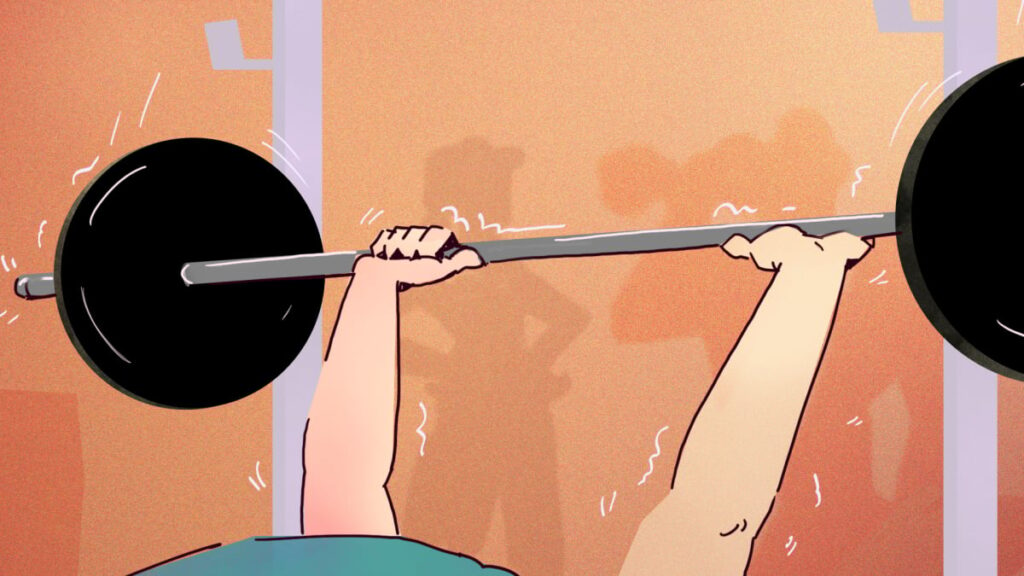Should you get a personal trainer? That’s a question that people often ask themselves when they’re new to the gym and feeling clueless, or when they’ve been working out for a while but feel like they aren’t making much progress. The truth is, you don’t need a personal trainer, but you may benefit from having one, depending on what kind of person you are, what motivates you, and—importantly—how much cash you have on hand.
Ironically, even though people seek out trainers expecting them to be experts in coaching lifts or providing nutrition advice, these aren’t necessarily things every trainer is good at. The good trainers do tend to be excellent at communication and other people skills, like motivation and goal setting. So let’s talk about what you can and can’t expect from a trainer.
What personal trainers are good at
Any halfway-decent personal trainer is going to excel at the human side of training. If you walk into the gym clueless about what to do, they’ll be the friendly face showing you the ropes, discussing your goals, and motivating you to keep showing up.
I’m mentioning this stuff first, because personal trainers aren’t all great athletes or even great coaches. But if clients keep coming back to a certain trainer, you know they’re good at making people feel welcome and motivated.
A personal trainer may be a good fit for you if you need:
-
Goal setting: A trainer can help you figure out what your goals are and how to start working toward them.
-
Accountability: Knowing that somebody will miss you (and you might be subject to a cancellation fee) can keep you showing up.
-
Structure: The trainer will give you something specific to do each session, so you won’t be winging it.
-
Guidance on healthy habits: Trainers can chat with you about nutrition, hydration, and other healthy habits that you can incorporate into your life.
-
Familiarity with the gym: If you’re scared to step foot in the weight room, going there with a trainer can make it a lot easier.
-
Beginner-level instruction on exercises: Never done a squat? Your trainer can show you how.
What personal trainers aren’t always good at
While it’s tempting to see personal trainers as experts on all things fitness (and many of them probably like being seen that way), the truth is that their experience and knowledge are often less comprehensive than you’d expect.
Some trainers are excellent at coaching lifts, or guiding you through specific training goals, but there are plenty of trainers who passed their certification test without any real knowledge of how to make somebody stronger or fitter in the long term.
I’m going to list some items that your trainer may be good at, but that many trainers aren’t. If any of these things are important to you, make sure to ask the trainer about them before you decide to give them your business. You may find you need to put forth some effort to find a trainer who is actually good in these areas—or find another type of professional entirely.
-
Detailed or advanced coaching of exercises: Most trainers can’t coach a deadlift as well as a powerlifting coach, or a kettlebell snatch as well as a kettlebell coach. Some trainers have learned outdated rules (like “knees shouldn’t go past the toes in a squat”) and never bothered to un-learn them, because for their general fitness clientele it doesn’t really matter. After you’ve learned the basics, it may be time to move on to a coach who can provide more specialized knowledge.
-
Programming for long-term success: Many trainers aim to keep you busy during your session, but aren’t necessarily planning for the long term. If you want to reach specific strength or performance goals, or have your training periodized into seasons, you may need to find a trainer who specializes in that.
-
Meal plans or detailed nutrition coaching: Trainers aren’t dietitians, and it’s out of scope for a trainer to tell you exactly what to eat. (Depending on your state, it may also be illegal.) While it’s fine for them to discuss the benefits of getting more protein, they shouldn’t be assigning you` a specific diet—which many of them will try to do.
-
Teaching you to use the gym on your own: You may have the idea that someday you’ll “graduate” from training, but some trainers don’t necessarily want you to—or they may not stop you, but neither are they pushing you out of the nest. If it’s important for you to go it alone someday, pay attention to what your trainer is doing for you (finding equipment, loading plates on the bar, choosing exercises) and ask questions so that you understand what’s going on.
-
Treating or preventing injuries: A strong body is a resilient body, so it’s not a problem if, say, your trainer gives you extra work to strengthen your shoulders, knowing that you had a shoulder injury in the past. But that’s no substitute for seeing a physical therapist (or other medical professional) to deal with an injury or medical limitation.
How to know whether a personal trainer is qualified
Most personal trainers, especially those employed by big-box gyms, have earned a certification such as ACE-CPT, NASM-CPT, or NCSA-CPT. (“CPT” stands for Certified Personal Trainer.) These certifications are all broadly similar; here’s an explainer on what trainers actually learn while earning one of these certifications. (I hold an ACE-CPT cert, so I’m speaking from experience here.)
This type of certification doesn’t ensure that the trainer is good at their job—in fact, you can get one without ever stepping foot inside a gym at all. Passing a CPT test shows that you have a basic understanding of the ethical and legal limitations of your job, and that you have at least a passing knowledge of body parts and exercises.
I’d view that CPT cert as a bare minimum, and be more interested in their other certifications, if any. Many require hands-on training and/or proficiency in performing the lifts, not just teaching them. (For example, my USA Weightlifting Level 2 certification required me to spend hours in the gym coaching and being coached by other trainees; my IKO Level 3 kettlebell sport certification required that I hit a certain number of reps of a lift called “long cycle” in a timed test.)
All that aside, if you’re looking for a good personal trainer, certifications just tell you what the person has learned themselves. You want to know what they have done for other people. This is why the best way to find a trainer (or coach of any sort) is to start with their clients. If somebody at your gym has been getting great results and is happy with their trainer, ask who it is!
Ultimately, if a trainer has a ton of experience, gets good results, and gets along well with their clients, I wouldn’t worry about their certifications. Conversely, if a trainer doesn’t seem to know what they’re doing or you just don’t personally get along with them, their certifications shouldn’t change your mind. Judge a trainer by what they do, not just what they know.
Personal trainers are expensive (and contracts can be scammy)
Before you can come to a conclusion about whether a trainer is “worth it” for you, you’ll need to talk money. There is no in-person, private-session, gym-based personal training that is cheap. So everything I discussed above has to be considered in relation to how much it costs, and whether you can reasonably afford it.
Personal training can run $50 to $200 per hour, and that’s on top of the membership fees for your gym. Make sure you’re not only OK with the cost, but also the terms that come with it. Some trainers require you to sign on for a minimum amount of training to start, or a certain number of days per week.
Some big-box gyms offer personal training as an add-on to your membership, and will try to sell you training packages and free sessions. (If your gym offers a “free assessment” or “free workout” when you start, it’s likely designed as a sales pitch for personal training.) Resist the temptation to sign on for a personal training package without fully checking out the details and meeting the trainer you’ll be working with.
And always, always make sure to read all the fine print on any contract you sign. Make them sit there while you read it, even and especially if the salesperson seems impatient. One scammy but common move is to tell you that you can cancel any time if you change your mind, but then you realize too late that you can’t actually cancel, or that the penalties or time limits make it impossible to truly get your money back.
All that said, there are plenty of trainers whose terms are reasonable, and who provide a service that many clients consider to be worth the money. If you can’t afford your gym’s full price for trainers but want to get some guidance without breaking the bank, look for options like these:
-
Semi-private or small group sessions, where you pay less because you’re sharing the time with others (and get less personal attention)
-
Spaced-out sessions—for example, attending once every week or every other week, and working out on your own the rest of the time. They may (or may not) charge extra to assign you workouts to do in between sessions.
-
Online personal training, which may include workouts that you do on your own, with a check-in at the end of the week or month. Offerings and prices vary widely, so make sure to get a clear sense of what services the online trainer provides.
When should you skip the trainer and just work out on your own?
I would recommend not hiring a personal trainer if you’re sufficiently motivated, curious, and brave, and if you’re willing to own whatever results you give yourself—good or bad.
The process of figuring out your own fitness journey can be part of the fun. You can try different types of exercise and different schedules, without worrying about whether your trainer will approve. You’ll also save a lot of money, which you can put toward exercise gear or other expenses, like group classes.
Just be aware that there won’t be one person to answer your questions. You can google a question and get a dozen different answers. You might wind up so paralyzed with indecision that you never actually get started. You might run into some extremely minor problem—a little bit of soreness, or a busy week that messes with your gym schedule—and not have somebody to talk you down and tell you that actually, you’re fine, just do your best and keep going.
Plenty of people do a fine job working out on their own. If you think that might be you, give it a try. But if you’ve been thinking about it for a while and never actually got started, or if you always tend to fall off the fitness wagon, consider whether you might need some kind of outside help. That might be a personal trainer, but it also might be an online powerlifting coach, or a friend who will meet you for a run every Thursday. Consider what you need, and assemble your support team as appropriate.


